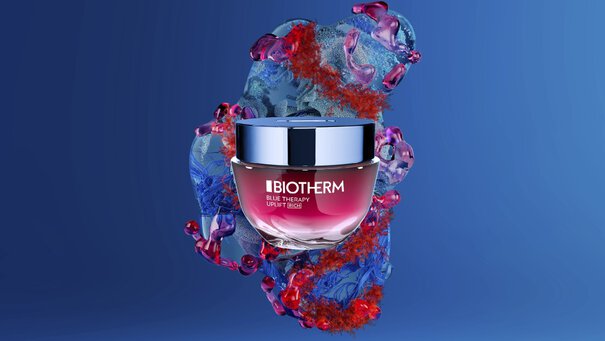What are algae anyway?
Algae are incredibly adaptable and can survive under extreme conditions. Due to their complex density of nutrients, they are a real miracle treatment for the skin. Algae can absorb and store nutrients directly from the water by osmosis - this is what makes them so extremely rich in nutrients. For example, some types of algae also contain more vitamin C than a lemon. Seaweed is the most common type of algae used in cosmetics. A simplified distinction is made between four types of algae: red algae, brown algae, microalgae (blue-green algae, cyanobacteria), and green algae.
The effect of algae on the skin
Several years ago, researchers discovered that marine algae contain powerful anti-aging ingredients and that they have a positive effect on the skin. Furthermore, algae are more similar to us than we probably think. Green algae has an amino acid content similar to that of human collagen in the body's cells. What's more, the pH value of algae is similar to our skin one (pH 5.5). We can therefore absorb their active ingredients particularly well. The minerals, vitamins, proteins, trace elements, and amino acids from algae pass through the epidermis into the deep subcutaneous layer, where they fight free radicals or activate cell renewal, for example.
Cosmetics with algae
The use of algae in cosmetics and especially in skincare products for the face is wide-ranging - this is due to its many positive properties. The chlorophyll is contains, for example, promotes the supply of oxygen to the skin. Algae are intense moisturizers, have extremely powerful regenerating properties, and promote blood flow to the skin. They can relieve the symptoms of sensitive or dry skin, promote skin regeneration, and boost cell renewal. They can also support blemished or oily skin by regulating sebum production. Furthermore, their vitamin content protects them from environmental aggressors and they are true free radical scavengers. Algae are also able to break down toxins and thus have a detox effect on our body.
These properties make algae a powerful ingredient for beautiful, smooth, and firm skin. The exact effects that organisms from the sea have on the skin depend primarily on the extraction process, the composition of the product, and the algae family. While brown and red algae have particularly effective anti-aging effects and are a popular ingredient in natural cosmetics, some green algae supply high-quality proteins and provitamin A. The best-known blue-green algae is most likely spirulina. Its extract has a moisturizing and remineralizing effect.
The anti-aging effect of brown & red algae
The brown alga, or Laminaria Ochroleuca, is particularly rich in minerals and trace elements. It has a firming and regenerating effect and supports cell renewal. In combination with other high-quality ingredients, such as resveratrol and hyaluronic acid, an anti-aging cream with brown algae extract reduces visible signs of skin aging. Beauty experts also make use of the power of red algae in anti-wrinkle creams, serums, and more. The firming effect of red algae makes it the perfect ingredient with an intense lifting effect for a youthful complexion. Red algae extract improves skin tone and provides firmness by stimulating collagen and elastin synthesis.
The benefits of cosmetics with algae at a glance:
- Intensely provides the skin with moisture and nutrients
- Supports the reduction of wrinkles and has a smoothing effect
- Antioxidant: algae act against free radicals and thus have an anti-aging effect
- Deep-acting regeneration for all-round beautiful skin and a radiant complexion
- Stimulates cell renewal and collagen synthesis
- Regulates the production of sebum
- Promotes blood circulation and thus reduces signs of cellulite
What else is algae good for?
Algae are not only in creams, masks and serums, real anti-aging miracles for the skin. You can also eat them and do something good for your health. Nowadays, they are available fresh, dried, as capsules, powders, and tablets. Rich in vitamin B12 and minerals, as vegetables they are real health and beauty boosters. Not all of the estimated 500,000 species are suitable for consumption. Brown algae makes a wonderful addition to smoothies or as a salad, for example. It contains the substance fucoidan, which can protect against inflammatory diseases such as rheumatism or stomach ulcers. In addition, brown algae lower cholesterol levels. The cyanobacterium (blue-green algae) Spirulina is also a popular superfood. The alga is in no way inferior to chia seeds, goji berries, and manuka honey - it contains particularly high protein and has a high vitamin content. Discover the powerful treasures that nature has to offer us!




